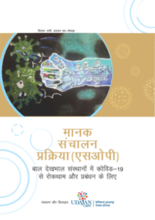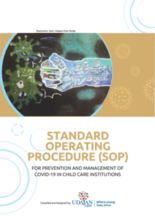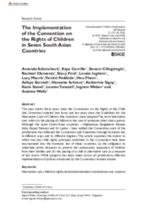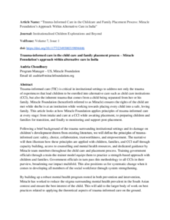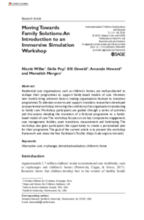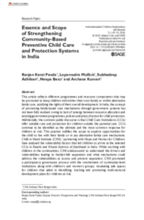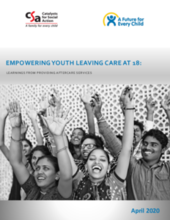childrens_living_arrangement
children_living_without_bio
Displaying 181 - 190 of 438
This booklet from Udayan Care provides guidance on how to ensure the health, safety, and wellbeing of children in child care institutions in India during the COVID-19 pandemic.
This booklet from Udayan Care provides guidance on how to ensure the health, safety, and wellbeing of children in child care institutions in India during the COVID-19 pandemic.
This article examines the extent to which two key child rights principles enshrined in the Convention have been incorporated into the domestic law of seven South Asian countries: (a) the obligation to undertake active measures to prevent the unnecessary separation of children from their families and (b) the placing of a child in alternative care as a measure of last resort.
This article looks at how Miracle Foundation applies principles of trauma-informed care (TIC) at every stage: from intake and care at a CCI while awaiting placement, to preparing children and families for transition, and finally to supporting post-placement.
The goal of the current article is to present this workshop framework and share the free Facilitator’s Toolkit.
In the current article, the cognitive, emotional, mental health, and behavioural benefits of deinstitutionalisation for children with varied disabilities in India and UK are discussed.
This study assesses the present situation of the deinstitutionalisation and alternative care arrangements in exile settlements concerning various cultural and socio-structural factors.
This article reflects different programmes and resource components that may be promoted to keep children with either their own family or within alternative family care, satisfying the rights of their overall development.
This paper describes an approach to supporting young people leaving Child Care Institutions (CCIs) in India that is potentially scalable to children in all CCIs.
The state of Kerala in India has issued guidelines for children's care homes in light of the COVID-19 pandemic, including calling on child welfare committees (CWCs) to take measures to send children home to their families, according to this article from the Times of India.

